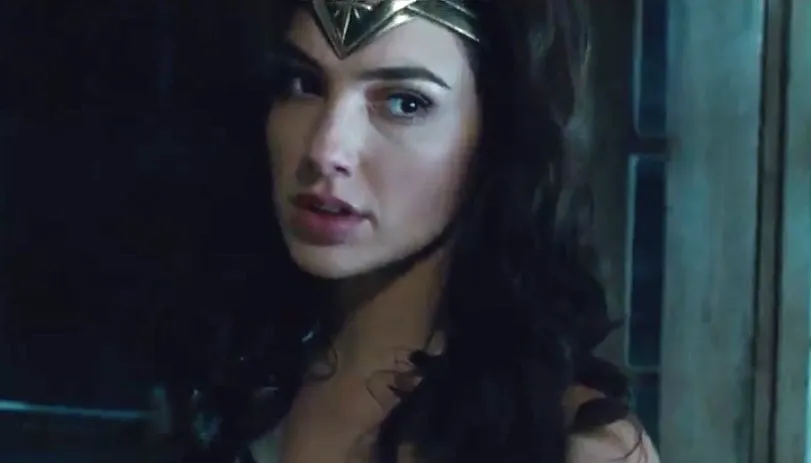Wonder Woman leaps onto the big screen this June, and I’m about to bust out of my eagle bustier with excitement.
I can’t help feeling that the Amazon’s return to pop culture prominence is a good sign. No, a comic book heroine can’t solve legislative encroachment on women’s rights—much less presidential encroachment on women’s bodies—but in the past, whenever Wonder Woman has enjoyed a burst of popularity, the role of women has gotten just a little bigger in the real world, too.
In 1941, psychologist William Moulton Marston (with, unsurprisingly, uncredited help from his wife, Elizabeth Marston, and their mutual live-in partner, Olive Byrne) created Wonder Woman as a corrective to the male-dominated superhero universe. She battles the forces of evil not only through super strength but also through the power of love, compassion, and—most important—truth.
Drawing on Greek mythology, Marston depicted Wonder Woman as the princess of a tribe of Amazons who live on “Paradise Island,” completely divorced from the modern world—and from men. He named Wonder Woman’s alter-ego “Diana Prince” in homage to Artemis/Diana, the Greco-Roman goddess of the hunt and virginity.
My own history with the superheroine stretches way back: I spent my childhood in star-spangled Underoos and my thirties immersed in writing the Olympus Bound trilogy, which finds the goddess Artemis in modern Manhattan, hunting down men who abuse women. Fusing modern sensibilities with classical myth is my obsession. Perhaps that’s why I prefer the Wonder Woman version of the Amazons’ proudly male-free utopia to the Greek original.
Conceived by a fundamentally patriarchal ancient society, the myths usually focus on the warrior women’s eventual submission to men. So while the comics portray Wonder Woman’s mother and aunt, Hippolyta and Antiope, as confidently celibate leaders of the Amazons, the myths tell a different story. One of the sisters (the versions differ) marries the hero Theseus and bears him a son. When Theseus abandons her for a new wife, the Amazons storm the wedding—and are promptly slaughtered. Homer calls mythology’s other famous Amazon, Penthesilea, “the equal of men,” yet she bites it during the Trojan War, killed off by the hero Achilles. I have every confidence that the new film—the first major superhero movie directed by a woman—won’t consign our heroine to such a fate.
For all her reliance on the names and tropes of antiquity, Wonder Woman has always been a different kind of female warrior. She was created not as a foil to demonstrate man’s superiority—but as a symbol of women’s.
It’s no accident that Wonder Woman debuted in the 1940s, when American women were, for the first time, widely hailed for their contributions to the war effort. Marston’s superheroine served as a better-dressed Rosie the Riveter, performing an essential role once reserved for men. While women were joining the workforce and the military in unprecedented numbers—building aircraft carriers, decoding German transmissions, and keeping the homefront economy humming—Wonder Woman fought the Nazis on the front lines with her indestructible bracelets and Lasso of Truth.
Unsurprisingly, the post-war era found our heroine retreating from view just as her real-world counterparts were asked to return to the home. Father Knows Best had little room for a woman with a penchant for fistfights. By the 1960s, Wonder Woman gave up her powers to save her boyfriend and opened a fashion boutique in Greenwich Village. But when women once more burst from the domestic sphere during the Women’s Liberation movement, Wonder Woman wasn’t far behind. In 1972, Gloria Steinem placed the superheroine on the cover of the first edition of Ms., the feminist magazine. Soon after, the Linda Carter television series brought a crime-fighting Diana into the living rooms of little girls everywhere. I grew up on re-runs of the series, spinning around in my homemade cape, pretending I, too, could save the world.
Sometime in the 1980s, feminism became a dirty word—or at least an outdated one. Women had their rights, society insisted, and should stop pushing for more. So while superhero movies dominated every summer of our new century, there was nary a superheroine in sight. Catwoman and Elektra scored one measly movie apiece—neither particularly good—and Jean Grey and the Black Widow settled for supporting roles in testosterone-heavy slug-fests even as male characters earned stand-alone spinoffs.
Marston believed that the end of World War II would usher in a new matriarchy. With women in power, war would cease. Clearly, such a utopia never came to pass. A major summit between Hillary Clinton, Angela Merkel, and Theresa May will have to wait. In the meantime, we don’t have a Paradise Island to retreat to, but nor do we, like the virgin goddess Artemis, need to swear off sex to maintain our independence. Instead, we’re all Diana Prince, striving to assert ourselves in a co-ed world. Like her, we can find love and friendship among our male compatriots—as long as we wear an armored bustier under our dresses (at least metaphorically) and continue the fight for truth and justice.
The timing couldn’t be better. Now, when we have rededicated ourselves to political action to defend our fellow women, our neighbors, and our planet, Wonder Woman is back to fight alongside us.
After watching one of the country’s most accomplished women temper her personality in order to appeal to the electorate’s sexist expectations—and fail anyway—I’m looking forward to enjoying a little time with a superheroine whose very existence defies the patriarchy.
Imagine: How would the presidential debates have turned out if Wonder Woman could sling her Lasso of Truth around the Republican nominee? I’m hoping that come 2020, more little girls in star-spangled Underoos will get a chance to find out.
(image: Warner Bros.)
Want more stories like this? Become a subscriber and support the site!
—The Mary Sue has a strict comment policy that forbids, but is not limited to, personal insults toward anyone, hate speech, and trolling.—









Published: May 26, 2017 03:45 pm